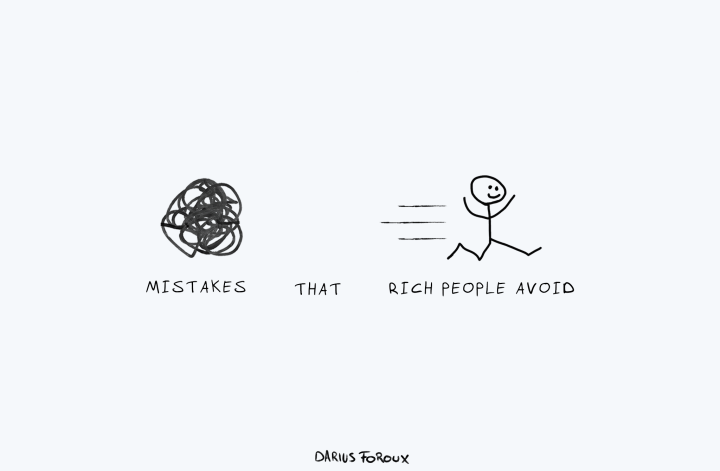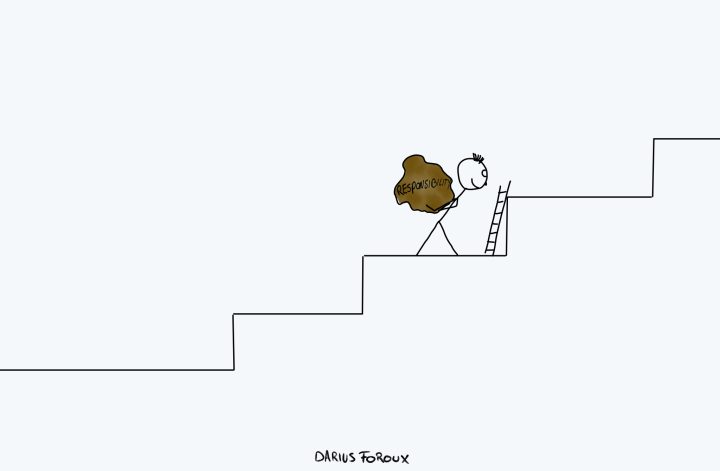Marcus Tullius Cicero was one of ancient Rome’s most well-known philosophers, writers, and statesmen. But he showed how even privileged people can practice frugality.
Despite being born into wealth and not having to worry about money during his entire lifetime, Cicero was a frugal person.
During his governorship of the Roman province of Cilicia in 51 BC, Cicero also applied his philosophy of frugality to the administration of his office. This made him immensely popular among the local population.
Cicero once said:
“The world has not yet learned the riches of frugality.”
The fact that he was so frugal and emphasized the importance of it is remarkable. If he desired, he could live the most lavish life. But instead, he chose philosophy, morals, and frugal living.
Cicero’s work has inspired many other thinkers such as Desiderius Erasmus, Martin Luther, and John Locke. Johannes Gutenberg probably believed that Cicero’s work was so important that the De Officiis (a three-part essay) became the second book in Europe to be printed, right after the Gutenberg Bible.
Maybe it was the only other written text that Gutenberg had at the time. But I’d like to believe that Cicero’s work was reprinted because of its importance!
As a lover of philosophy, Stoicism, and history, I’ve been reading more about Cicero in the past year. While he’s not particularly known for his ideas about frugality, I think Cicero is one of the earliest examples of someone who lived frugally and was also successful.
Why does frugality mean riches?
In our current society, we have an extreme relationship with money. I see that people are living on two opposite sides:
- Spending almost everything you earn
- Spending almost nothing you earn
All or nothing. That’s also a character trait of our times. We’re either so frugal that we pinch every penny and live stringent lives.
Or, we tend to spend too much money and end up living from paycheck to paycheck, never building any form of long-term wealth.
The truth is you don’t have to live on these extremes. You can live a balanced, frugal, and still rich life.
Cicero believed that to live a fulfilling life, we must cultivate virtues such as honesty, compassion, and courage. He saw philosophy as a means to attaining wisdom and leading a good life.
One of Cicero’s most famous quotes, “Frugality includes all the other virtues,” explains his belief that living a simple life will cultivate all the important virtues within us.
To me, this is THE most important reason I’m living frugally.
By this time in my career, I don’t worry for a second about ever being without work. If you’ve invested in your education, learned valuable skills, and built a network, you will always find work.
If you have work, you will earn. That doesn’t mean I spend everything I earn. Sure, I can get sick or injured. This is why you want to save and invest money. That way you always have something to fall back on.
But more importantly, if you live a frugal life, you strengthen your character.
Frugality gives you strength
Look, frugality doesn’t mean fear of spending. This is what a lot of people get wrong about simple living.
If you’re afraid to spend your money, you’re not frugal in the way Cicero spoke about. Cicero said that frugality leads to riches.
Riches means abundance.
Not only financially, but also mentally. If you are afraid to spend or lose money, you don’t have abundance, you’re thinking about scarcity.
“I don’t want to spend my hard-earned money.” That’s the mindset of a fearful person.
Be a RICH frugal person. Live simply because it makes you grateful, peaceful, and focused on your work.
Think about it. When do you spend the most money? Here are some examples:
- Going on vacations
- Buying clothes
- Eating at restaurants
- Leasing cars
- Owning a big house
Do you need those things to be happy? Do you think about buying new clothes or a new car when you’re immersed in your work????
NO.
For the past month, I’ve been 100% focused on editing my book, The Stoic Path to Wealth. This is the first time I’m working with a publisher.
My editor, Merry Sun from Portfolio / Penguin, gave me such great feedback last month on my manuscript that I’ve been immersed in my book on another level. The feedback helped me to see my book much clearer.
This is why I wanted to work with a great publisher and great editor. The process pushes me to improve my writing.
During this last edit, I didn’t think for a second about buying something. I didn’t think about going on vacation. I didn’t about anything external.
Think about a time you were focused on something. Maybe you had a deadline at work. Or you were building the perfect room for your baby. Maybe you had to study hard for your exams.
Did you think about buying something? Did you feel bored? No, you were doing something important.
Never forget this: We spend a lot of money on things that we think will make us feel significant. The car, clothes, house, vacation. We think those things make us feel alive only to find out that we still feel empty inside.
Nurture your mind and live simply
Deep down, every single person knows this. No object or experience will ever make you feel whole inside.
YOU must make yourself whole.
The reason that Cicero believed that excessive wealth and luxury were impediments to living a virtuous life, is that those things distract us from what really makes a difference in our lives.
In his works, Cicero emphasized the importance of being able to think for oneself and not blindly following society’s dictates. If you look at his life, you see someone who was always busy. He accomplished a lot in his life.
The amount of writing he left behind is mind-boggling. There’s even a Wikipedia page dedicated to the works of Cicero. His writing was primarily in the form of letters he wrote to friends and other important people in his life.
This is from the Wikipedia page: “While 37 books of his letters have survived into modern times, 35 more books were known to antiquity that have since been lost.”
He wrote nearly 900 letters. If you’re so busy with writing, you don’t have much time to think about other things. It doesn’t have to be writing. You can do any other useful thing.
Cicero was not only a governor and politician, he was also a lawyer. He believed that it’s important to keep yourself occupied with important things. To keep nurturing your mind, as he explained:
“It is not by muscle, speed, or physical dexterity that great things are achieved, but by reflection, force of character, and judgment.”
The reason I love frugality and simple living is that you have a lot of time and energy. You can then use that time to reflect, learn, and improve your mind.
The more you improve your mind, the stronger it will become. And with that comes riches.




